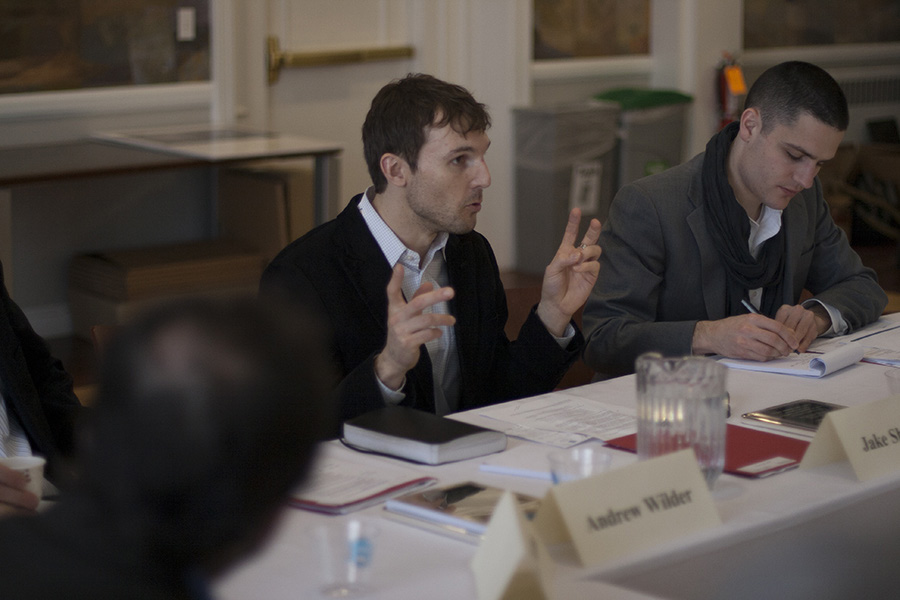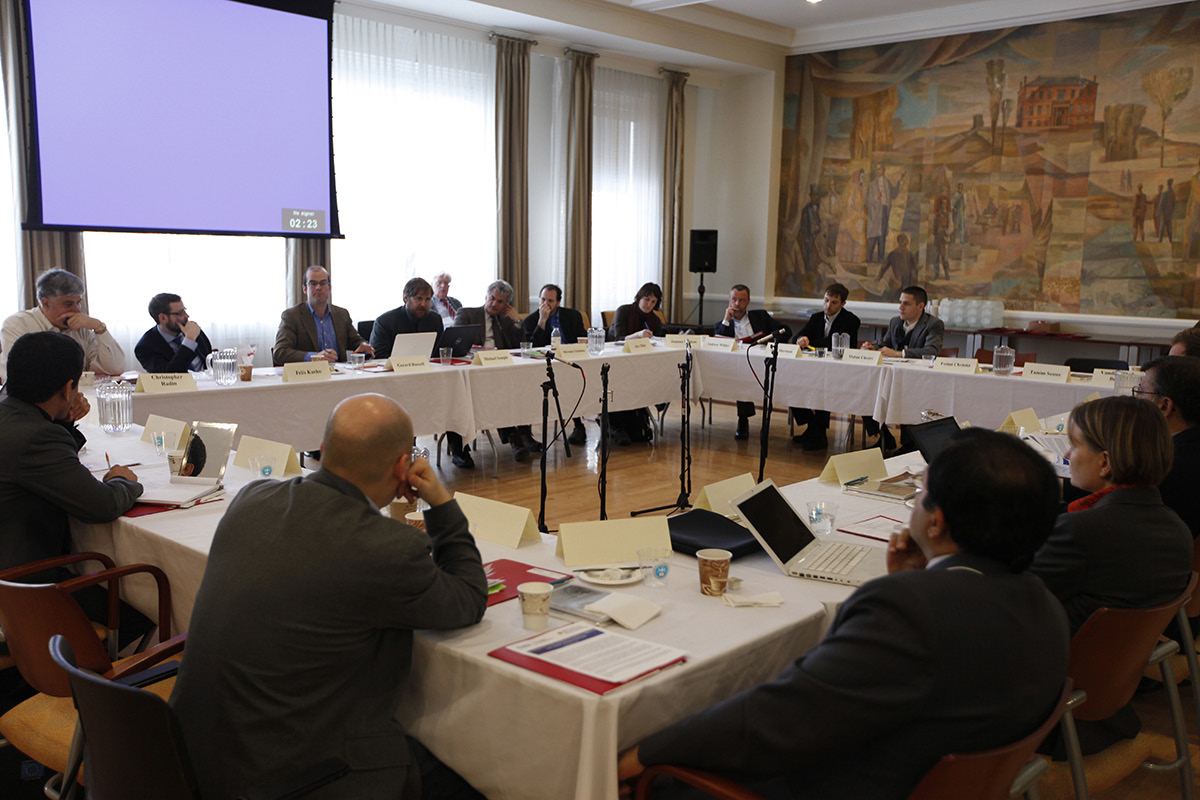2010 The Prospects for Security and Political Reconciliation in Afghanistan
 As the conflict in Afghanistan enters its ninth year, the international community and the Afghanistan government have indicated that they will pursue some form of political reconciliation with elements of the insurgency. Indeed, President Karzai, in his inaugural speech, placed reconciliation at the forefront of Afghanistan’s peace-building efforts. There are already a number of efforts in this direction, with ad hoc initiatives by the Government of Afghanistan, the United States, and the International Security Assistance Force (ISAF) to reintegrate former insurgents who seek to disarm – the Afghan government is developing a plan to provide jobs, education, and security to former opposition fighters – as well as recent, informal meetings in Saudi Arabia between representatives of the Afghan government and the Quetta Shura aimed at settlement with the insurgent leadership. The United Nations has recently called for several senior Taliban members to be de-listed from its terror list as a step towards negotiations.
As the conflict in Afghanistan enters its ninth year, the international community and the Afghanistan government have indicated that they will pursue some form of political reconciliation with elements of the insurgency. Indeed, President Karzai, in his inaugural speech, placed reconciliation at the forefront of Afghanistan’s peace-building efforts. There are already a number of efforts in this direction, with ad hoc initiatives by the Government of Afghanistan, the United States, and the International Security Assistance Force (ISAF) to reintegrate former insurgents who seek to disarm – the Afghan government is developing a plan to provide jobs, education, and security to former opposition fighters – as well as recent, informal meetings in Saudi Arabia between representatives of the Afghan government and the Quetta Shura aimed at settlement with the insurgent leadership. The United Nations has recently called for several senior Taliban members to be de-listed from its terror list as a step towards negotiations.
Yet, political settlement, both local and with insurgent leadership, is controversial – the latter particularly so within international policy circles. Many of Afghanistan’s immediate and regional neighbors have national interests that may either contribute to, or undermine, negotiations. As discussion of reconciliation moves ahead, its preconditions, prospects, and implications should be part of Afghan and international planning.
The workshop, held under Chatham House rule, convened a select group of 27 policy-makers and experts on Afghanistan and the region to discuss the opportunities for and obstacles to potential political settlement in the country. The discussion included the impact of such a settlement on the current political framework in Afghanistan, on counter-insurgency efforts, including the development of the Afghan National Security Forces, and on the political economy of the conflict, as well as regional dynamics that may influence the prospects of sustainable reconciliation and peace in the country. It was held in collaboration with the Belfer Center for Science and International Affairs at Harvard University’s Kennedy School of Government, with collaboration from the Center on International Cooperation at New York University and the United States Institute of Peace. Funding was provided by the Compton Foundation.
Convened by:
Matan Chorev (A’05, F’07, EPIIC’04), Executive Director for the Future of National Security Project at the Harvard Kennedy School’s Belfer Center for Science and International Affairs
Jake Sherman (A’96, EPIIC’96), Associate Director for Peacekeeping and Security Sector Reform at the New York University Center on International Cooperation
Participants:
Antonia Chayes, Visiting Professor of International Politics and Law at The Fletcher School of Law and Diplomacy, Tufts University; former Assistant and later Under Secretary of the US Air Force, where she was awarded the Distinguished Service Medal
Fotini Christia, Assistant Professor in Political Science at the Massachusetts Institute of Technology; Dr. Christia has published work on the role of local elites in civil wars in Comparative Politics
James Clad, Distinguished Research Fellow at the National Defense University in Washington, D.C.; former U.S. Deputy Assistant of Defense for Asia Pacific Security Affairs from 2007 to 2009; former Director of Middle Eastern Affairs at the Overseas Private Investment Corporation and Senior Counselor to the U.S. Agency for International Development
Gilles Dorronsoro, Visiting Scholar with the Carnegie Endowment for International Peace South Asia Program, with expertise in Afghanistan and Turkey; author of Revolution Unending: Afghanistan, 1979 to the Present
Vanda Felbab-Brown, Fellow at the Brookings Institution and Adjunct Professor in the Security Studies Program at the Georgetown University School of Foreign Service; author of Shooting Up: Counterinsurgency and the War on Drugs, which examines these issues in Colombia, Peru, Afghanistan, Burma, Northern Ireland, India, and Turkey, and numerous policy reports and academic articles, including “Peacekeepers Among Poppy: Counternarcotics Policy in Afghanistan” and “Expand the Agenda in Pakistan and Afghanistan.”
Paul Fishstein, Fellow at the Carr Center for Human Rights Policy and the Belfer Center for Science and International Affairs at the Harvard Kennedy School, is currently involved in research projects in Afghanistan looking at the relationship between aid and stabilization and at the effect of post-2001 economic policy on markets and economic outcomes; former Director of the Afghanistan Research and Evaluation Unit (AREU), a Kabul-based policy research institution
Tom Gregg, Fellow and Program Coordinator of the New York University Center on International Cooperation’s Afghanistan Regional Project; former Special Representative of the Secretary-General and Head of the Southeast Region for the United Nations Assistance Mission in Afghanistan
Pervez Hoodbhoy, Professor of High Energy Physics and Chairman of the Physics Department at Quaid-e-Azam University in Islamabad, Pakistan; a staunch opponent of militant Islam in Pakistan and an advocate for democracy in the country, a strong supporter of the peaceful use of nuclear technology, non-nuclear proliferation, and nuclear disarmament
 Arif Jamal, scholar and prominent journalist from Pakistan; he has written more than 200 investigative and interpretive articles in English, focusing on such subjects as Islamist politics in Pakistan, jihad in Kashmir, the Pakistan Army, madrassas, and Afghanistan; author of Shadow War: The Untold Story of Jihad in Kashmir, that profiles and analyzes the history of the jihad in Kashmir and the role of the Pakistan Army in shaping it since 1988
Arif Jamal, scholar and prominent journalist from Pakistan; he has written more than 200 investigative and interpretive articles in English, focusing on such subjects as Islamist politics in Pakistan, jihad in Kashmir, the Pakistan Army, madrassas, and Afghanistan; author of Shadow War: The Untold Story of Jihad in Kashmir, that profiles and analyzes the history of the jihad in Kashmir and the role of the Pakistan Army in shaping it since 1988
Minna Järvenpää, founding member of the Afghanistan Analysts Network; former Head of Analysis and Planning within the United Nations Assistance Mission in Afghanistan from 2007 to 2009 and senior governance advisor within the British Government’s Stabilisation Unit in Helmand and Kabul from 2005 to 2007
Felix Kuehn, Founder of AfghanWire.com together with Alex Strick van Linschoten; co-editor of My Life with the Taliban (2010), an autobiography of Abdul Salam Zaeef, a senior former member of the Taliban
Hon. Sulaiman Layeq, Pashtun cultural figure, poet, and a founding member of the People’s Democratic Party of Afghanistan
David Mansfield, Fellow in the Afghanistan/Pakistan State Building and Human Rights Program at the Carr Center for Human Rights Policy at the Harvard Kennedy School; he has worked for a variety of organizations including the Afghanistan Research and Evaluation Unit, the Aga Khan Development Network, and the United Kingdom’s Afghan Drugs Inter-Departmental Unit and Department for International Development
Gen. David McKiernan(ret.), he has served from platoon leader to numbered Army/Combined Joint Task Force Commander in Europe, CONUS, Korea, Southwest Asia, and Afghanistan; his troop leading assignments have included tours of duty in the International Security Assistance Force (ISAF)/US Forces Afghanistan
Joanna Nathan, former Senior Analyst for the International Crisis Group in Afghanistan (May 2005-July 2009); author of the chapter “Reading the Taliban” in the 2009 book Decoding the New Taliban: Insights from the Afghan Field, edited by Antonio Giustozzi
Hon. Noorolhaq Olomi, elected from Kandahar to Afghanistan’s National Assembly in 2005 and has served as the chair of the Armed Services Committee in the Lower House; he is the leader of the United National Party of Afghanistan; in 1981, he became head of the Central Forces in Kabul and later in Kandahar, where he was also a governor general
Vikram Parekh, in the UN Peacebuilding Support Office, he spent from 2002 to 2009 in Afghanistan as Senior Analyst with the International Crisis Group and then as Political Affairs Officer and Head of the Southeast Regional Office with the United Nations Assistance Mission in Afghanistan”
Nigel Pont, Program Director for the State Building & Human Rights in Afghanistan & Pakistan program; former Country Director for Mercy Corps’ Afghanistan, focusing primarily on rural agricultural development in Helmand and Kandahar provinces, natural resource management in the north east of the country, and microfinance in Kabul and Jalalabad
 Christopher Radin, tracks the development of the Afghanistan National Security for the Long War Journal
Christopher Radin, tracks the development of the Afghanistan National Security for the Long War Journal
Eric Rosenbach, Executive Director of Research at the Belfer Center for Science and International Affairs at the Harvard Kennedy School, leads projects focused on security issues in Pakistan and Afghanistan, intelligence and cyber security; former national security advisor for U.S. Senator Chuck Hagel
Gerard Russell, former diplomat with the British Foreign Office for 14 years, heading one of its diplomatic missions and two of its largest political teams in embassies overseas; between 2001 and 2003, he designed and headed up the UK effort to reach out to public opinion in the Arab and broader Islamic world; between 2007 and 2008 he headed the political team at the British Embassy in Kabul
Michael Semple, regional specialist on Afghanistan and Pakistan, with 25 years of experience in the two countries; former political officer with the United Nations, contributing to the building of the post-2001 Afghan political order and from 2004-2007 served as deputy to the European Union Special Representative for Afghanistan
J. Alexander Thier, Director for Afghanistan and Pakistan at the U.S. Institute of Peace and chair of the Institute’s Afghanistan and Pakistan Working Groups; co-author and editor of The Future of Afghanistan and was a member of the Afghanistan Study Group, co-chaired by General James Jones and Ambassador Thomas Pickering
Andrew Wilder, Tufts University Feinstein International Center Research Director for Policy Process and the Primary Investigator of the Center’s three-year research program on “Winning Hearts and Minds? Understanding the Relationship between Aid and Security”; an Associate Fellow at the Afghanistan/Pakistan State Building and Human Rights Program at the Carr Center for Human Rights Policy at the Harvard Kennedy School; he established and directed Afghanistan’s first independent policy research institution, the Afghanistan Research and Evaluation Unit and directed the Pakistan/Afghanistan program of Save the Children (US)
The full contents of of the workshop can be found here.
